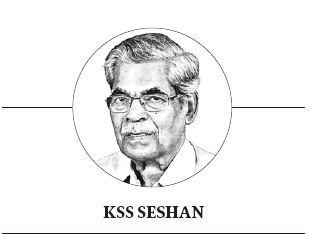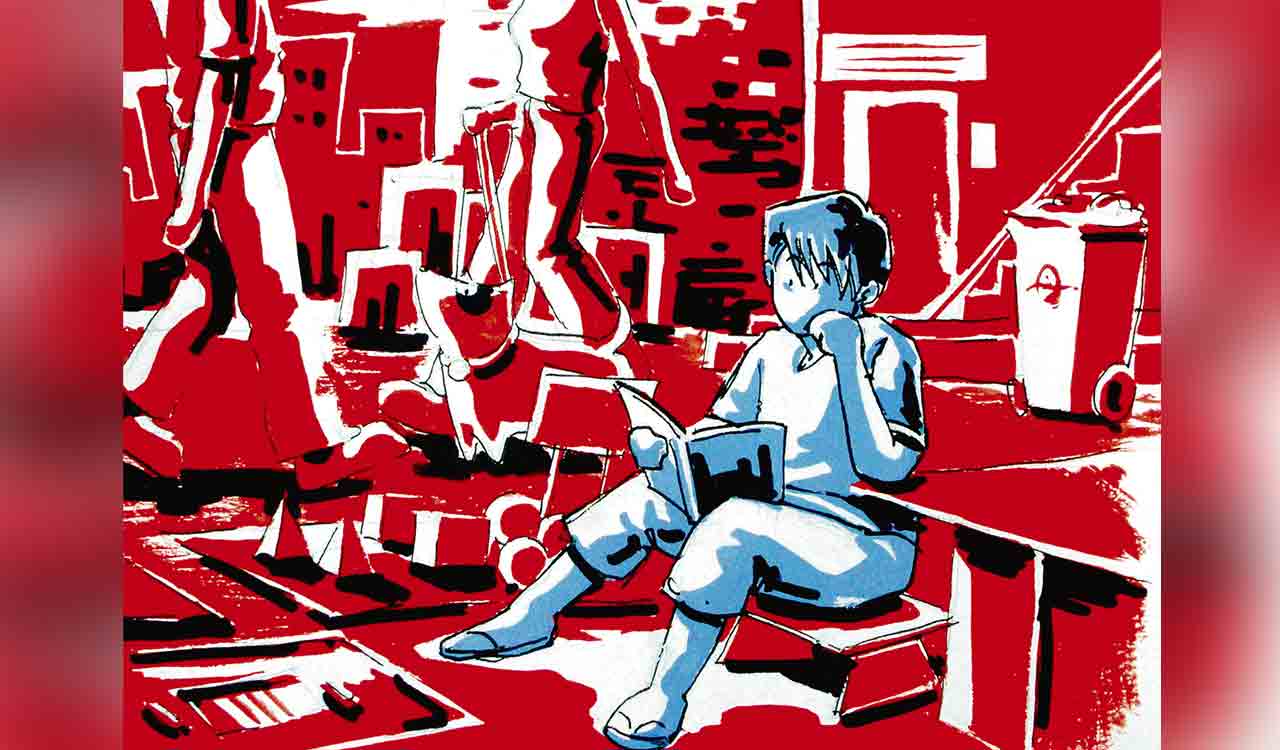Enough damage has already been done to the subject by the governments in meddling with the academic issues concerning the teaching and writing of history
Published Date – 5 March 2024, 11:59 PM

By KSS Seshan
There were reports that a former President of India in his first-ever speech in the central hall of Parliament omitted even mentioning the name of Pandit Nehru while referring to Indian political leaders of the post-independence days. Nehru, the first Prime Minister of independent India, was an internationally acclaimed statesman, the author of the Non-alignment Movement and ranked among the world’s greatest leaders of the time.
Even at this distance of time, Nehru is remembered for the contributions he made to furthering the values of freedom, democracy, non-alignment and human rights. He is a part of contemporary Indian history. It is rather odd that a new President of India, the constitutional head of the state, could not even think of invoking the name of Nehru when he was mentioning other names associated with the country’s recent past.
Great Legacy
There was a time when an earlier government in Karnataka cancelled the annual Tipu Jayanti which the successive State governments in Karnataka had been celebrating for some years in the past. Tipu Sultan, famously known as the Tiger of Mysore, was a thorn in the flesh of the British. Single-handedly he fought valiantly against the British at a time when other native rulers like the Nizam of Hyderabad became allies to the colonial masters, and ultimately chose to die on the battlefield rather than compromise in his opposition to the British. While to be grateful to remember and commemorate the legacy of such a great freedom fighter should be the minimum duty of the present generation, the cancellation of such a celebration speaks volumes of the obscurantist religious divide that some sections could follow.
Such numerous instances make us think how history, many a time, is abused by the powers that be. Of all the social sciences, history as a subject of study has a large following both in terms of academic and non-academic pursuits. It is a favourite subject, studied in the classrooms to pass the exams and obtain degrees. It is a favoured optional to clear competitive exams to get into Services while a minuscule public at large reads and assimilates it for its intrinsic value. But most importantly, people who run governments also follow the nation’s history to assess to what extent their present purposes and ideologies are discerned through the pages of history. To justify their stand and their deeds, the present governments tend to look to the past to find an alibi.
Attracting Attention
It has become the order of the day when even at high-profile seminars and symposia responsible public figures while eulogising over India’s past, gloat at ancient Indians’ knowledge about plastic surgery citing the example of Ganesha who had the elephant head grafted, that they flew aeroplanes as there are references to Pushpak Vimanas in Ramayana, and that television and radio were made use of during Mahabhata period, etc. Such talks as causal guffaw may go well for the occasion but when said from the high-profile science and technology platforms by the people in power, we must worry as to what lengths narratives of the past are made use of for pushing through one’s own chosen ideologies. For them, scientific and secular history is a bane.
History has been attracting intense attention from everyone connected with the government these days as never before. The contents of writing history at school and collegiate levels are put under greater scrutiny. Whenever there is a change in the party in power, either at the Center or in the States, the controversy on the writing of history gets revived. Some State governments had earlier, though unsuccessfully, tried even to remove history as a subject of study at the undergraduate level. But what is more harmful to the subject is the fact that the ideology with which the governments are run takes centre stage to dictate the way history be written. History has virtually become a pawn to be tossed by the players of the game of politics.
Historical occurrences generally are assessed on the existing and contemporary parameters. Normally, we tend to search in the past for those aspects that we greatly value at present. That is basically the reason for the prevalence of diametrically opposite views on historical events and individuals over a period of time. The present younger generation of scholars even in the West despise colonialism, which the Western scholars unequivocally supported in their writings in the past. It appears as though the present generation has not excused their forefathers for having perpetrated colonialism in the 19th Century.
Drawing Lessons
History, for its sheer value, is being increasingly sought as a tool of analysis by several disciplines. Research studies in Sociology, Anthropology, Economics and other social sciences do endeavour to provide a time series rather than in a snapshot, static picture of their studies. Mathematicians like Bertrand Russell and DD Kosambi have enriched history with their deep understanding of past societies from the perspective of their own specialised field of study.
Past provides the much-needed indicators for us to know and draw lessons. In a way, history is the foundation for the edifice of the present as well as the future. While technological advancement will take humanity to a high pedestal of material comforts, it has necessarily to be backed up by the much-needed cultural, moral and intellectual strength of society to enjoy the fruits of such advancement. The self of a nation to a large extent depends on its cultural traits rather than on mere material prosperity. It could also be argued that the progress of a nation depends more on the social justice that it pursues than only on the visible signs of material development.
Enough damage has already been done to the subject by successive governments in meddling with the academic issues concerning the teaching and writing of History. Twisting of history to suit the ideological leanings of a government, wanton exclusion of past individuals whose ideology we do not agree with and past incidents we do not appreciate will only amount to deliberate trampling and abuse of history. Let us not make history the battleground for the warring ideologies of politicians for their own personal and political ends. Let us recognise the past the way it happened.

KSS Seshan is retired Professor of History at University of Hyderabad




